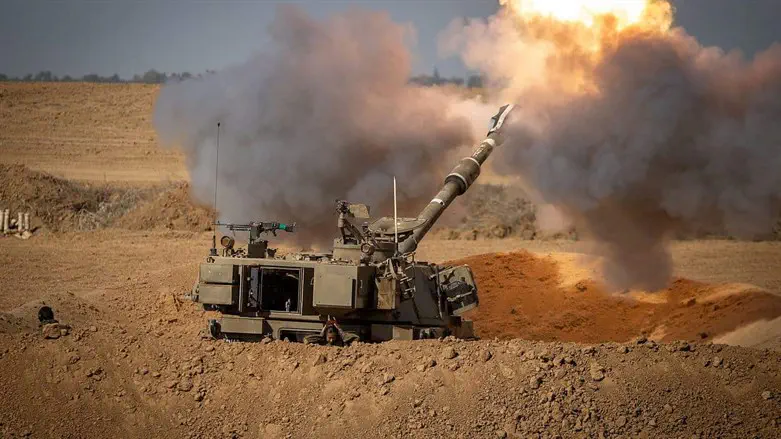
Former Prime Minister Naftali Bennett told TheNew York Times about his plan to both defeat Hamas and avoid a bloodbath for both Israel and Gaza's civilian population.
Bennett claims that an invasion of Gaza City would bring the IDF to a bloody, protracted war in unfamiliar terrain, in a variety of combat with which the modern IDF has little experience. The heavy casualties to be expected from such a campaign would provoke widespread public pressure - both internally and internationally - to bring the conflict to a premature conclusion. In this scenario, he claims, Hamas would fight on familiar ground, behind defenses and traps it has had ample time to prepare, and continue to barter hostages for various supplies. This assessment aligns with the statements by Pentagon officials who have expressed doubts about the IDF's readiness for a protracted urban war in Gaza City.
Bennett's plan involves avoiding urban combat altogether. He proposes that the IDF cut the Gaza Strip in two, separating Gaza City from Khan Younis, and establishing a buffer zone approximately two kilometers wide across the Gaza Strip. Those wishing to flee south from Gaza City will be offered two Israeli-controlled humanitarian corridors, and Israel will permit water, food, and medicine to reach the south and will create medical and humanitarian safe havens in the buffer zone.
As a direct result, Gaza City will be cut off from all supplies. Controlling the proposed buffer zone will require a smaller force, allowing Israel to demobilize a portion of its reservists and reduce strain on the economy. The hostages Hamas has seized - particularly the infants and the elderly hostages - will become significant liabilities, demanding additional care and supplies from the organization's stockpiles.
The Israeli military can exchange continual bombing - a costly technique with doubtful effectiveness in light of Hamas' infamous underground network of tunnels and bunkers - for smaller targeted raids by its special forces. These raids, Bennett explains, are one of the strongest points of Israel's military, and have been executed successfully for years against targets throughout Palestinian cities in Judea and Samaria. They conserve military resources by not holding ground and spare the civilian population the collateral damages inherent in aerial or artillery bombardments. They also stand to garner considerable international support for Israel and to reduce the chances of a triggering event that would open another front with Hezbollah or in Judea and Samaria.
The IDF has recently launched a series of ground raids into Gaza, claiming that it is preparing the way for a larger invasion still to come. Infantry, combat engineers, and armored forces have all taken part, engaging and eliminating multiple Hamas targets.
As a final stage, Bennett says, Israel would offer Hamas operatives wishing to abandon Gaza a chance to leave, ostensibly in exchange for the release of the remaining hostages.
“It would be like Beirut in 1982, when Yasir Arafat and all of his terrorists got on a boat and left Lebanon forever,” Bennett says, recalling the Palestinian Arab leader’s forced eviction to Tunisia under Israel’s siege of the city. At that point, the displaced people of southern Gaza might choose to return to their homes, and the displaced people of southern Israel could confidently opt to go back to theirs.

